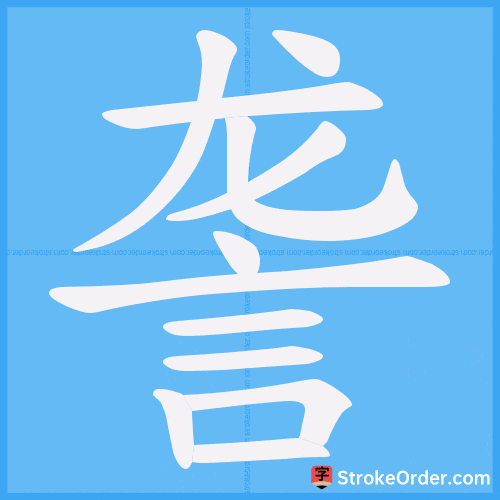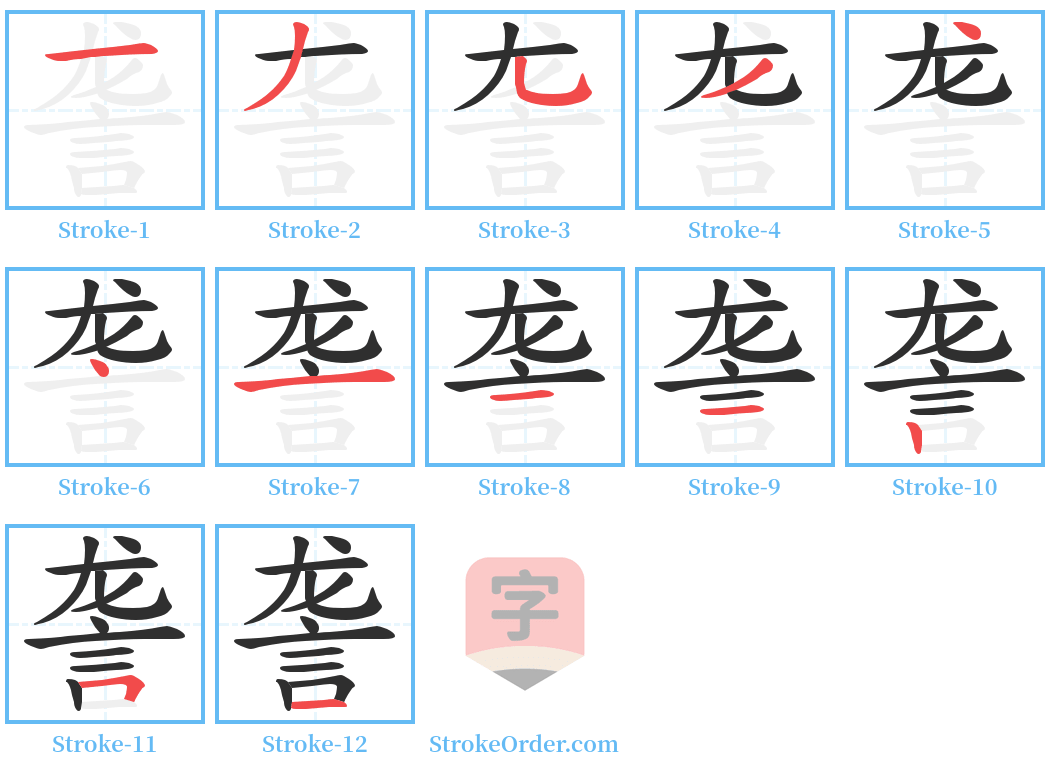詟 Stroke Order
Animated Stroke Order of 詟

Stroke Order Diagrams for 詟

Information of 詟
Pinyin
zhé
Radical
言
Strokes
12 strokes
Usage
★★
Definition
詟
1. 丧胆;惧怕。
Lost courage; afraid.
2. 前后因袭,不加改革。
Following the past without reform.
3. 禁忌;忌。
Taboo; something to be avoided.
4. 多言。
Speaking extensively.
引
1. 《说文》:詟,失气言也。
"Shuo Wen": Zhe refers to losing one's spirit while speaking.
2. 《汉书·张汤传》:群臣震詟。
"Han Shu, Zhang Tang Zhuan": The officials were shocked and afraid.
3. 班固《东都赋》:陆詟水栗。
Ban Gu's "Dong Du Fu": Land trembles, water shakes.
4. 扬雄《羽猎赋》:竦詟怖。 注:“恐惧也。”
Yang Xiong's "Yu Lie Fu": Shivering and dreaded. Note: "to be afraid."
5. 《汉书·项籍传》:诸将詟服,莫敢枝梧。
"Han Shu, Xiang Ji Zhuan": The generals were afraid and submissive, none dared to branch out.
6. 《新唐书·李密传》:决两阵之胜,噫呜咄嗟,足以詟敌,我不如公。
"New Tang Book, Li Mi Zhuan": Deciding victory in two armies, the sounds were enough to shock the enemy, I am not as good as you.
例
又如:詟惕(惊骇);詟敌(震慑敌人);詟骇(惊惧);詟惮(惧怕);詟息(因惧怕而不敢出气);詟栗(恐惧);詟挠(畏惧屈服);詟惧(恐惧)
For example: zhe ti (startled); zhe di (intimidate the enemy); zhe hai (afraid); zhe dan (fear); zhe xi (afraid to express oneself); zhe li (fearful); zhe nao (to yield in fear); zhe ju (to be afraid).